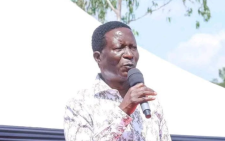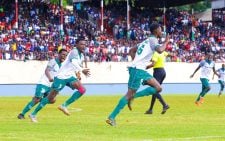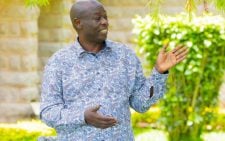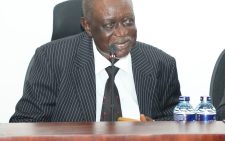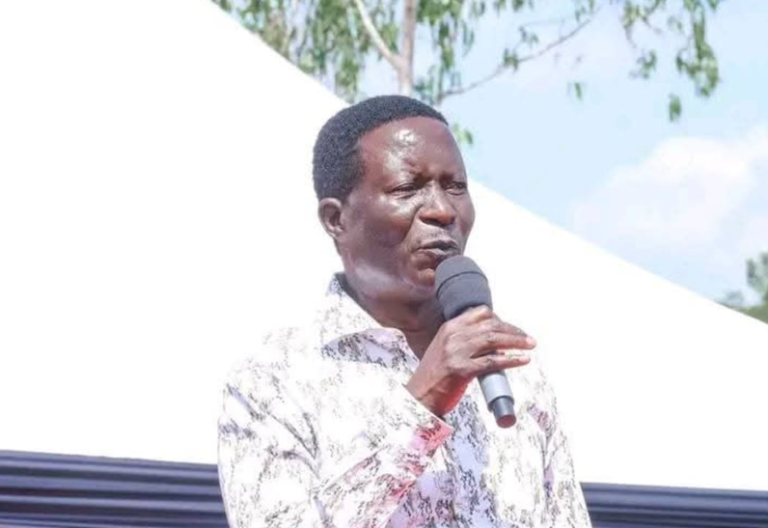How Nigerian dissident Nnamdi Kanu was deported from Kenya
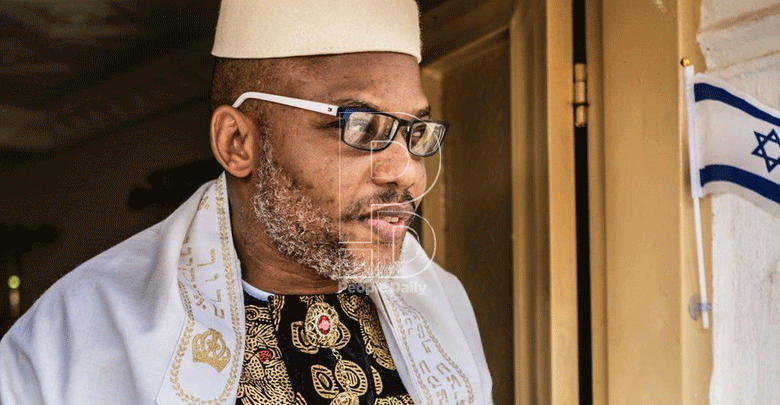
Nyaboga Kiage and agencies
Details of how the most wanted Nigerian fugitive with alleged terror links was nabbed in Kenya can now revealed by the People Daily.
People Daily has established Nnamdi Kanu (pictured) who is the leader of Nigerian separatist organisation Indigenous People of Biafra (IPOB) was captured by Kenyan authorities at the Jomo Kenyatta International Airport (JKIA) as he tried to enter the country.
Kanu had on Saturday night arrived at the JKIA only to be arrested by Kenyan immigration authorities.
A source that spoke to this reporter in confidence as they are not authorised to speak to the media said that the Immigration officials detained Kanu at the airport as they scrutinized his travel documents.
“He was nabbed and held for some hours as the authorities tried to address an immigration issue which was described as minor. Moments later he was handed over to Nigerian authorities,” the source said.
Our sources revealed that it was officials from the Nigerian High Commission who requested for the fugitive’s detention and subsequent deportation to the west African country.
His records seen by this reporter revealed that Kanu had travelled to Israel from Germany and onwards to Kenya where he was nabbed.
Kanu who runs a radio station based in London, UK is accused of leading a terrorist group.
The group has been demanding that the Eastern Region of Nigeria is allowed to secede.
He was first arrested in 2015 in Nigeria and faced eleven counts including links to terrorism, illegal possession of firearms, improper importation of goods, defamatory statements and publications amongst others.
His arrest led to serious demonstrations in the Eastern part of Nigeria as they demanded that he is released.
In 2017, Kanu jumped bail and he has been wanted over the case that he was facing for the two years before he disappeared.
In a statement earlier this week, Abubakar Malami, Nigeria’s Minister of Justice thanked the Kenyan Government for aiding the arrest of Kanu.
He further said that the arrest was appropriate as there is need for Kanu to go on facing trial. However, his arrest might put Kenya in a fix if a Thursday morning address by the Coalition of Igbo-British lawyers is anything to go by.
Through attorney E.R Okoroafor, the lawyers criticized Kenya for the illegal manner in which its authority nabbed Kanu and threatened that they were planning to take the matter to the International Criminal Court (ICC).
“Kenya did not follow the due process when they arrested Kanu and handed him over to Nigeria. Kanu was in Kenya as a British national and not Nigerian since he was using his British passport,” he said.
In 2020, IPOB established an armed wing, the Eastern Security Network (ESN), which has been blamed for a number of violent attacks on police stations, electoral offices and other federal properties in southeast Nigeria.
Around 130 police and security officials have been killed and some 20 police stations were attacked this year, according to local media tallies.
Abdul Azeez Sulaiman, representing the Coalition of Northern Group, a nongovernmental organization campaigning for the interest of northerners in the southeast, told DW that IPOB’s independence aspirations have a significant impact on ethnic non-Igbo Nigerians living in the country’s southeast.
“We are calling on federal authorities, the federal prosecutors, to include charges of incitements to violence that involved violent killings and attacks on people of non-Igbo ethnicity living in the southeast and other places,” said Sulaiman.
Biafra campaign goes online
The secessionists have been carrying out massive online campaigns, publishing and distributing tweets and Facebook posts via an army of online activists.
President Muhammadu Buhari vowed to crush IPOB in a recent tweet, which the platform subsequently deleted for a breach of its policy.
